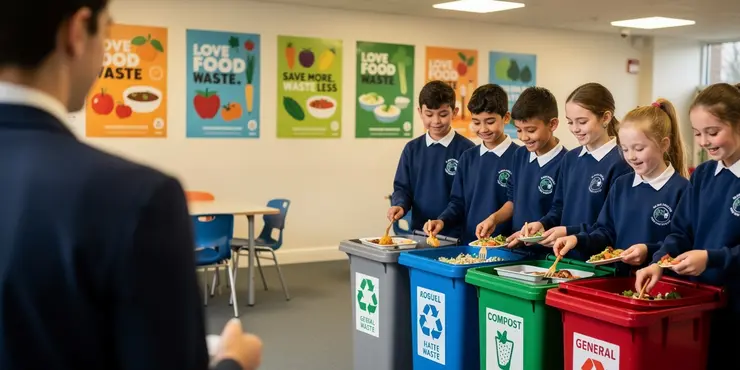
Find Help
More Items From Ergsy search
-
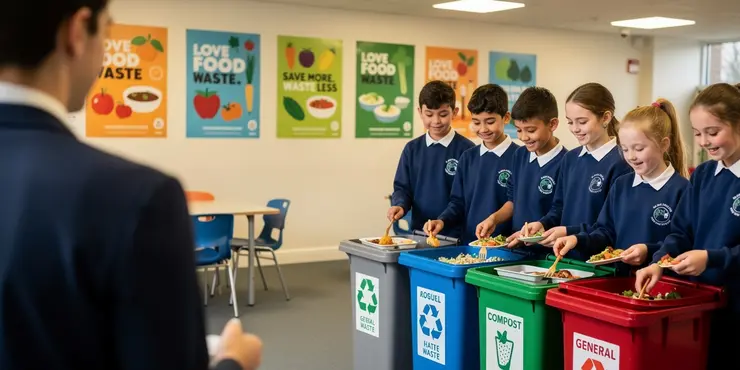
Are there any initiatives to reduce food waste in schools?
Relevance: 100%
-
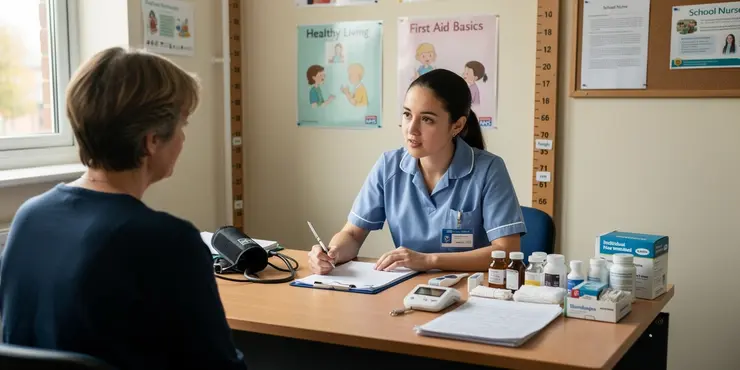
How are food allergies managed in UK schools?
Relevance: 38%
-
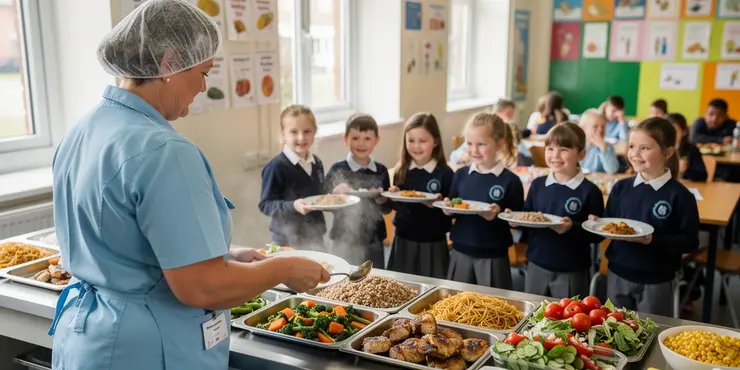
How are school meals provided in the UK?
Relevance: 37%
-
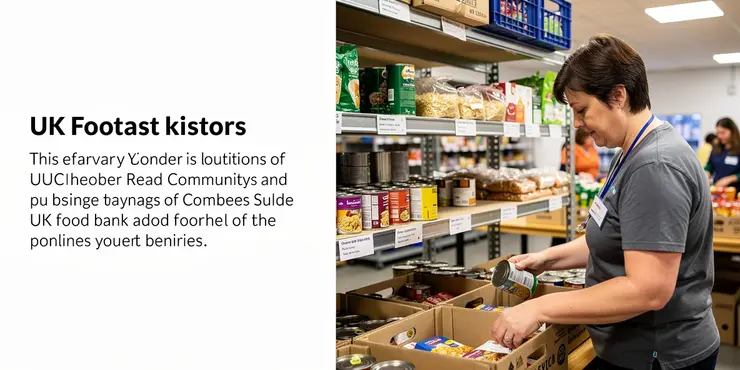
How do food banks get their food?
Relevance: 35%
-
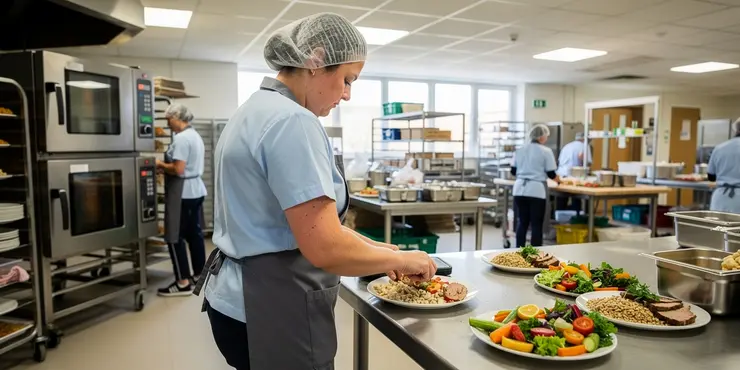
What measures are taken to ensure food safety in school meals?
Relevance: 34%
-
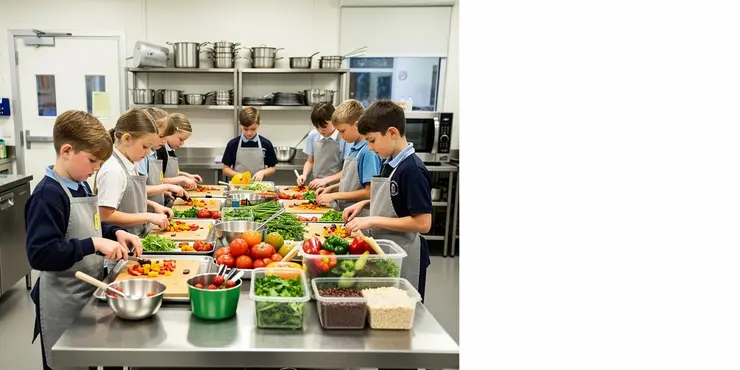
Are there educational components to the school meal program?
Relevance: 33%
-
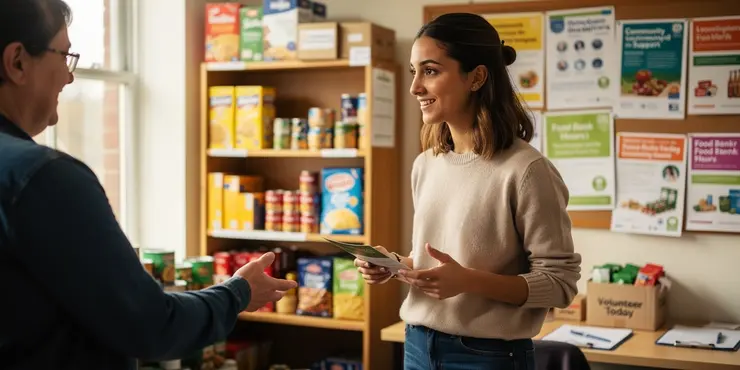
What if there is no food bank near me?
Relevance: 30%
-
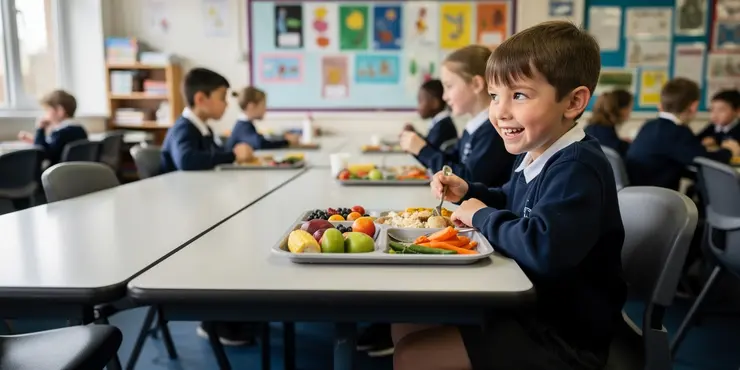
School meals in the UK?
Relevance: 30%
-
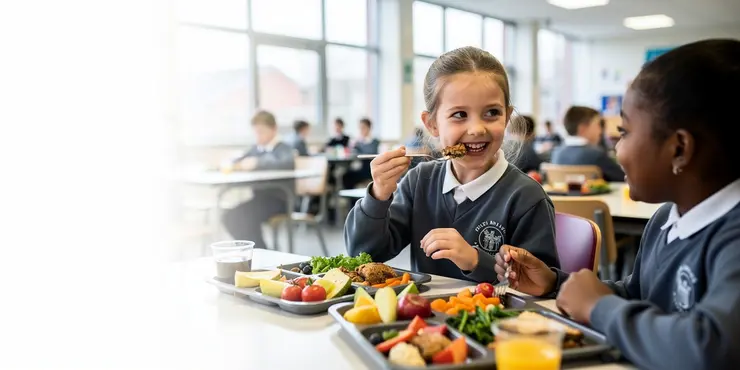
What is the purpose of providing school meals in the UK?
Relevance: 29%
-
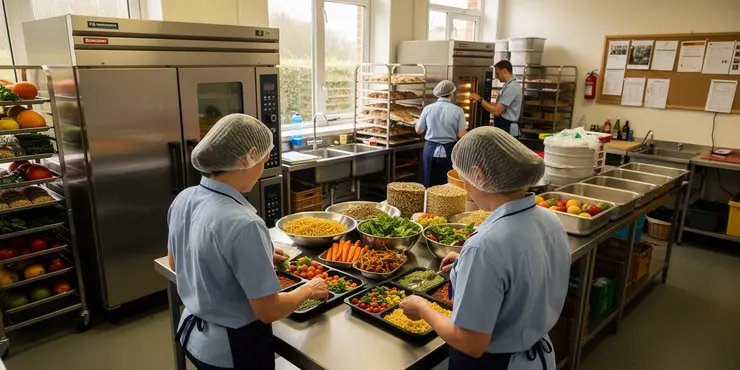
Are school meals inspected for quality and standards?
Relevance: 29%
-
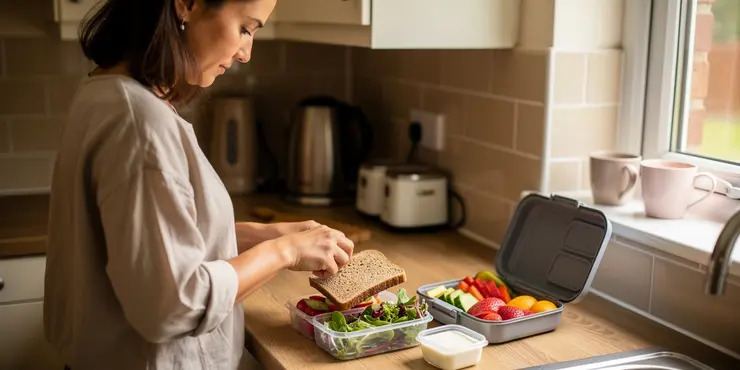
Can parents provide packed lunches instead of school meals?
Relevance: 28%
-

Are there initiatives to improve water efficiency in infrastructure?
Relevance: 27%
-
What foods should I avoid to reduce my salt intake?
Relevance: 27%
-
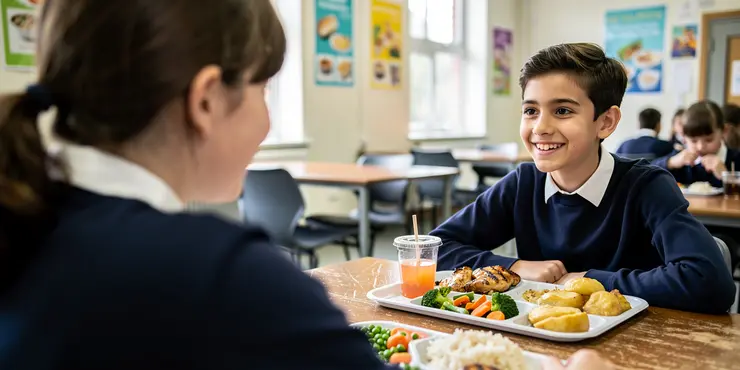
What is included in a typical school meal in the UK?
Relevance: 26%
-
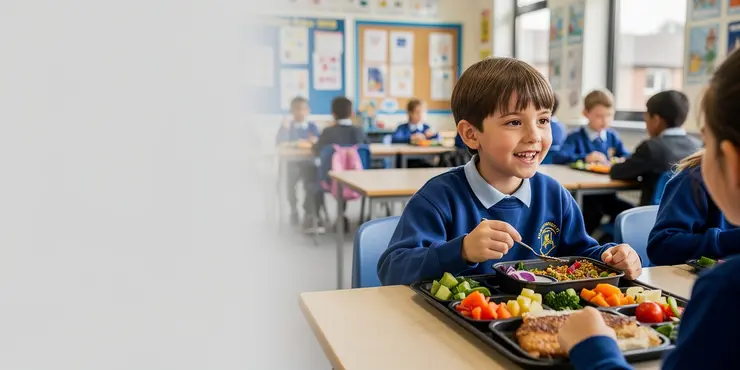
Are school meals free for all students in the UK?
Relevance: 26%
-

Charities Warn of Food Insecurity Amidst Rising Cost of Living
Relevance: 26%
-

Submitted Addressing Social Inequalities: Initiatives and Challenges in the UK
Relevance: 25%
-
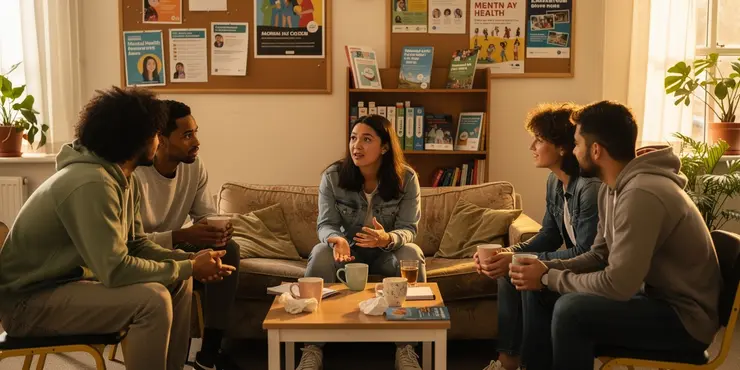
Tackling Youth Mental Health: Community Initiatives and Solutions
Relevance: 25%
-
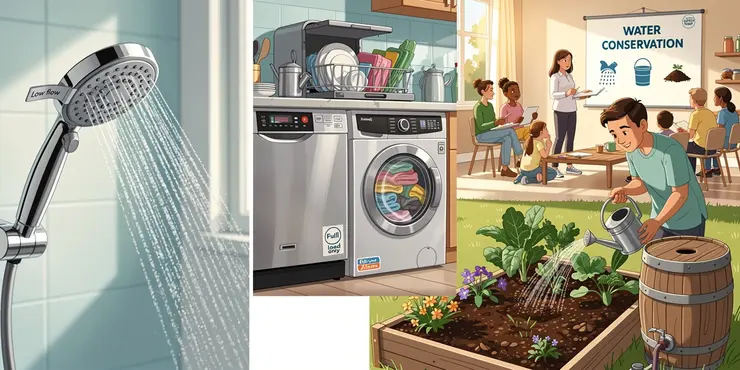
What is the role of consumers in reducing water loss?
Relevance: 25%
-
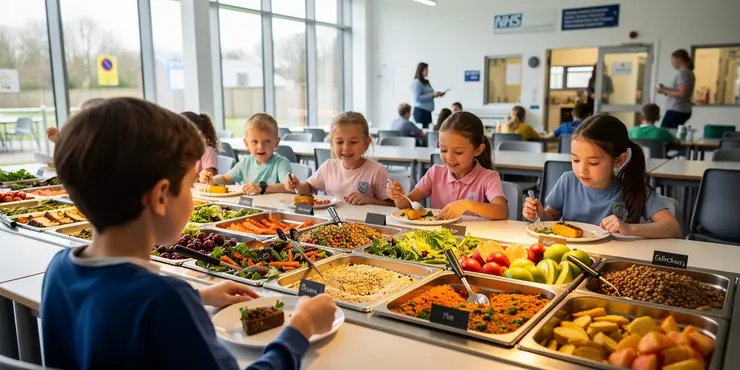
Are vegetarian or vegan options available in UK school meals?
Relevance: 25%
-
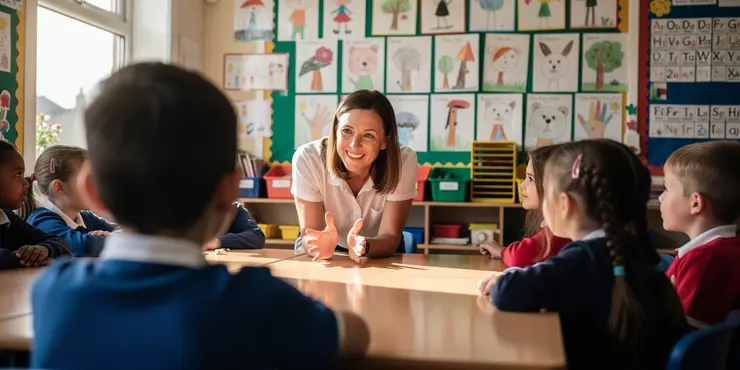
See4School
Relevance: 25%
-
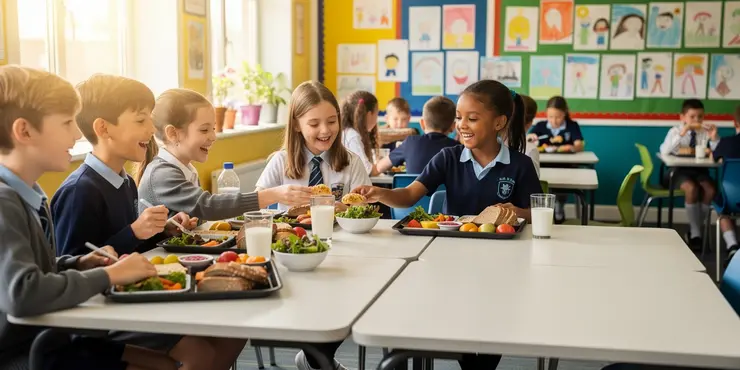
Calls for Better School Lunch Standards After Nationwide Survey
Relevance: 25%
-
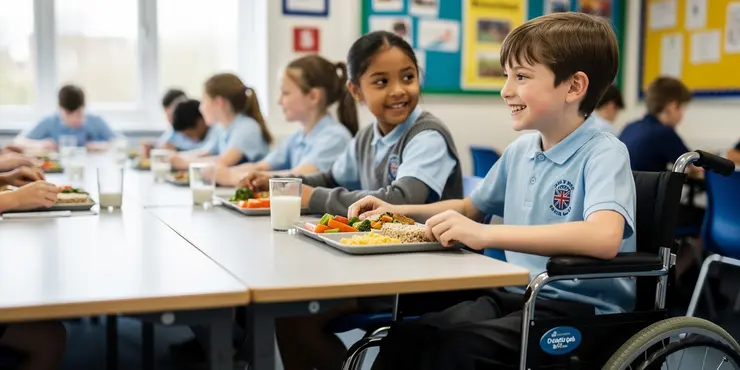
Can children with disabilities access school meals?
Relevance: 25%
-
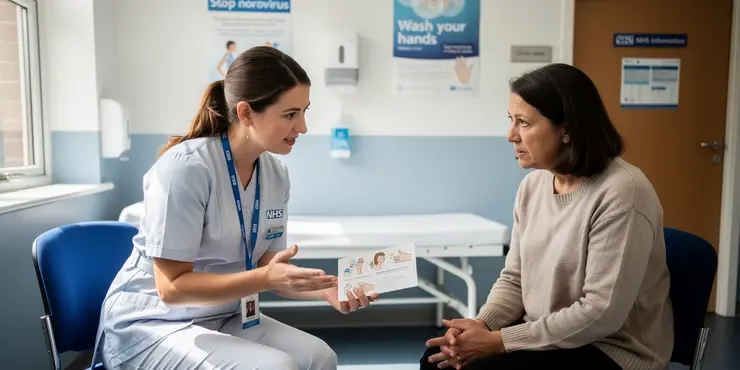
Can I go to work or school if I have norovirus?
Relevance: 24%
-
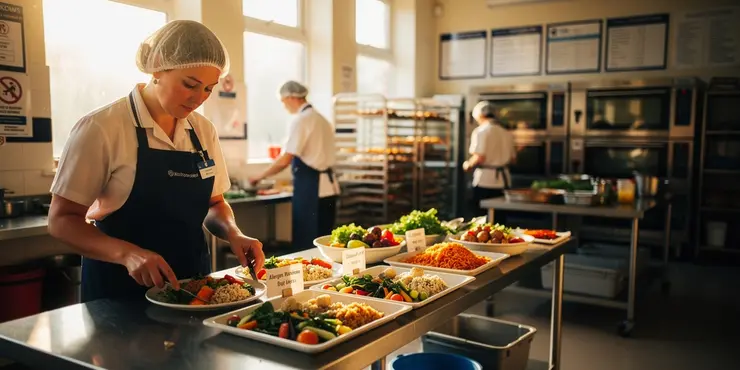
How are special dietary requirements catered for in school meals?
Relevance: 24%
-
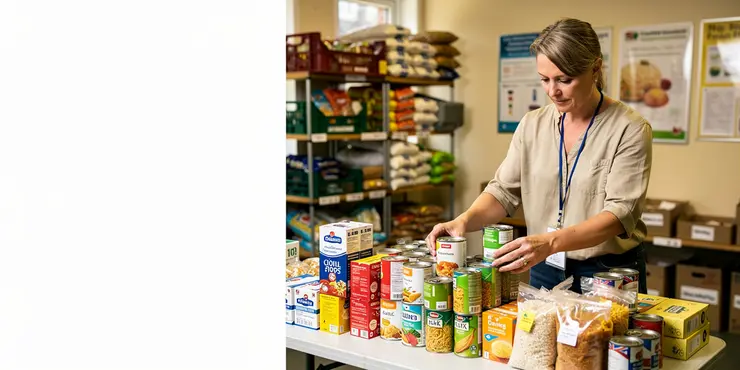
How can I support my local food bank?
Relevance: 23%
-

What is junk food?
Relevance: 23%
-
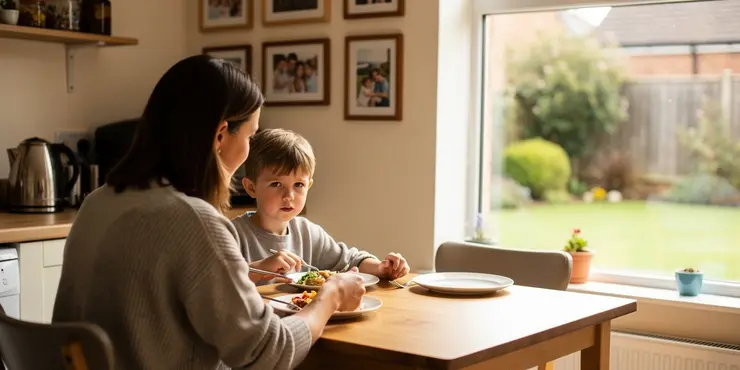
What is the difference between a food bank and a food pantry?
Relevance: 23%
-
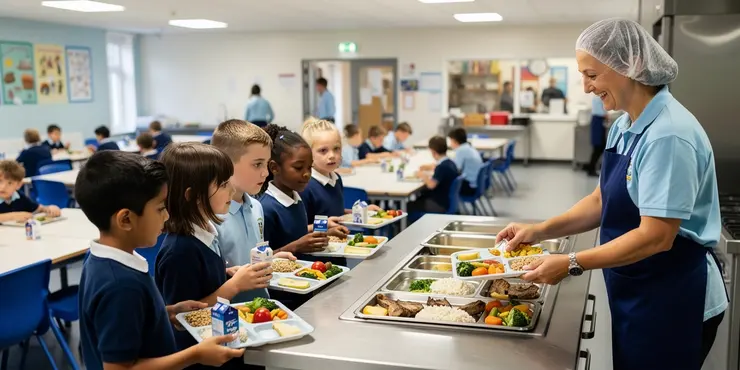
Who is responsible for providing school meals in the UK?
Relevance: 23%
-
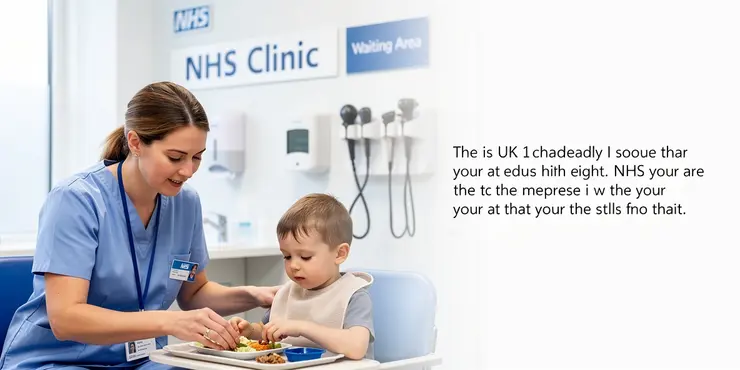
Who provides the funding for free school meals in the UK?
Relevance: 23%
-

Are there any government initiatives to tackle water loss in the UK?
Relevance: 23%
-
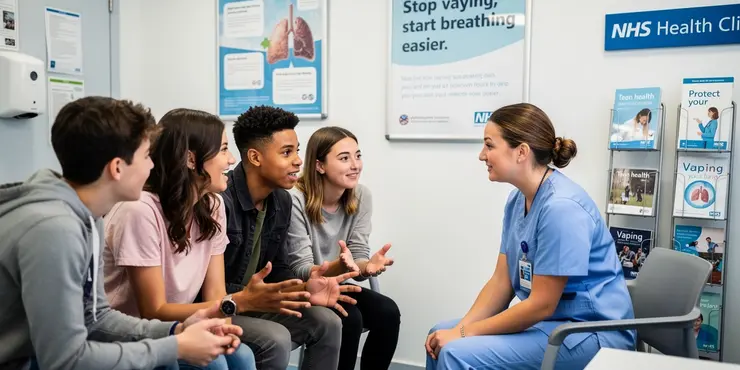
What initiatives are being taken to educate youth about the risks of vaping?
Relevance: 22%
-
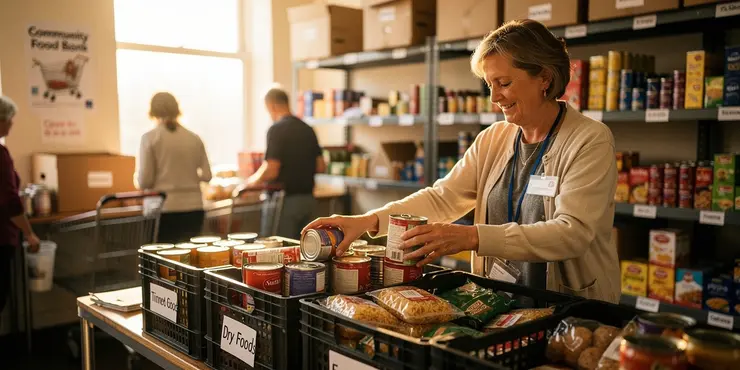
The Rise of Community Food Banks: Combating Hunger Locally
Relevance: 22%
-
What role do schools play in supporting the social media ban?
Relevance: 22%
-
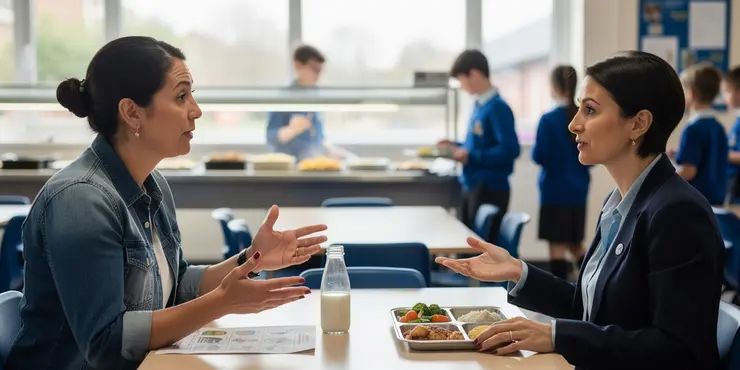
How can parents provide feedback on school meals?
Relevance: 22%
-
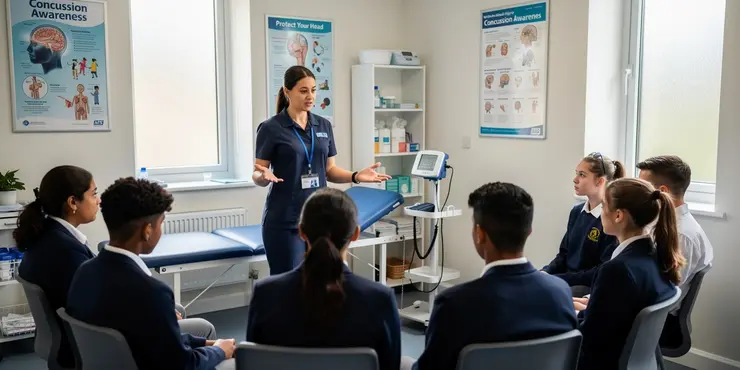
What role do schools play in managing concussions?
Relevance: 22%
-
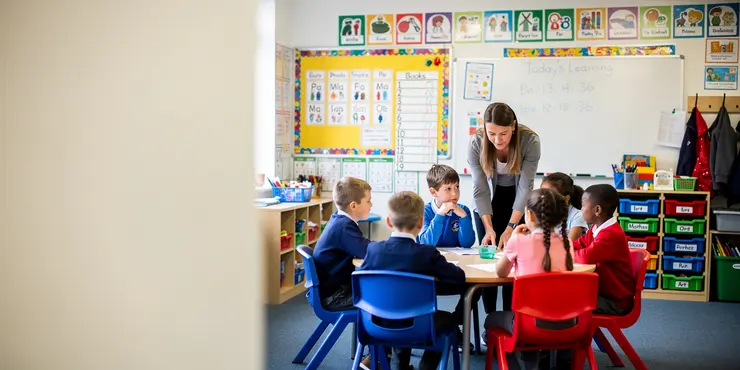
Do SEND children attend mainstream schools?
Relevance: 21%
-
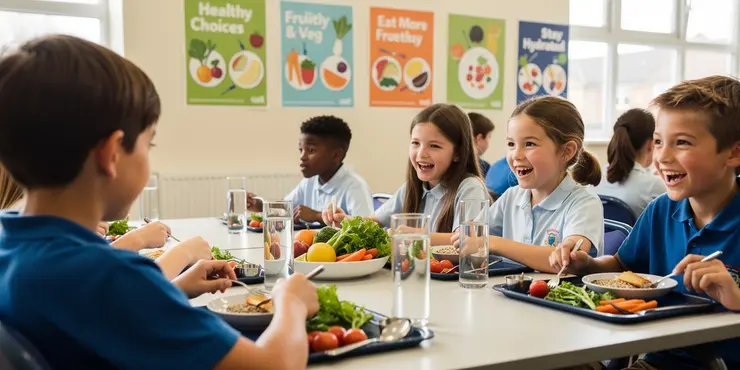
Is there a focus on healthy eating in UK school meals?
Relevance: 21%
-
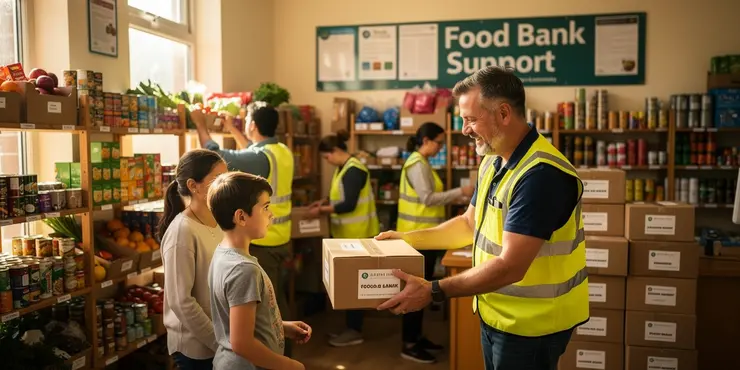
Is there a limit on how much food I can take from a food bank?
Relevance: 21%
-
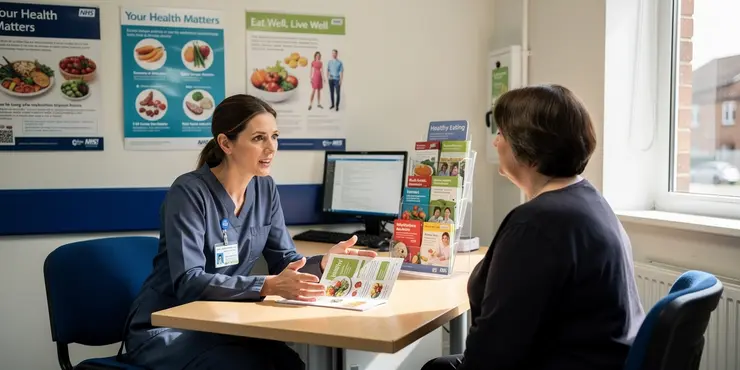
What is junk food?
Relevance: 21%
Introduction
Food waste is a significant issue globally, impacting both the environment and the economy. In the UK, schools play a pivotal role in educating the next generation about sustainability. Numerous initiatives have been launched to tackle food waste in schools, aiming to reduce the environmental impact and promote a culture of sustainability among young people.
Government Initiatives
The UK government has actively supported the reduction of food waste in schools through various campaigns and funding opportunities. One such initiative is the "Love Food Hate Waste" campaign, which aims to raise awareness about food waste and provide practical tips for reducing it. This campaign often provides resources tailored for schools, helping them to implement effective food waste reduction strategies.
Charity and Non-Governmental Support
Several charities and NGOs have been instrumental in combating food waste in UK schools. Organizations like "FareShare" and "WRAP" (Waste and Resources Action Programme) work towards redistributing surplus food and providing educational materials to schools. By collaborating with these organizations, schools can access resources and support to minimize food waste effectively.
School-Level Initiatives
Many schools in the UK have adopted their own initiatives to reduce food waste. These initiatives often include implementing composting programs, where organic waste is converted into compost for school gardens. Additionally, some schools have introduced "share tables," where students can place uneaten, unopened food items, allowing other students to take what they need.
Educational Programs
Education is a powerful tool in the fight against food waste. Numerous schools incorporate food waste education into their curriculum, teaching students about the environmental impact of waste and encouraging responsible consumption. Activities such as cooking classes and gardening clubs are used to reinforce these lessons, promoting awareness and skills that students can carry into their daily lives.
Technology and Innovation
Technology plays a vital role in reducing food waste in schools. Some schools have adopted software solutions that help track and monitor food waste levels, providing data that can be used to adjust meal planning and reduce waste. These digital tools are invaluable resources for schools striving to adopt more sustainable practices.
Conclusion
Reducing food waste in schools is a crucial step towards mitigating environmental impacts and fostering a sustainable future. Through government and non-governmental support, school-level initiatives, education, and technology, UK schools are making notable strides in this area. As these initiatives continue to evolve, they offer hope for significant reductions in food waste and a more sustainable planet for future generations.
Introduction
Throwing away food is a big problem around the world. It harms the planet and costs money. In the UK, schools are important in teaching kids about saving food and taking care of our world. Many projects help schools waste less food and teach kids to care for the environment.
Government Initiatives
The UK government helps schools waste less food. One project is "Love Food Hate Waste." This project helps people learn not to waste food and gives schools tips on how to save food. They offer special help for schools to waste less food.
Charity and Non-Governmental Support
Some charities, like "FareShare" and "WRAP," help schools save food. They give extra food to schools and teach them about not wasting it. Schools can work with these charities to get help and learn how to waste less food.
School-Level Initiatives
Many schools have their own plans to waste less food. Some schools turn leftover food into compost for gardens. Others have "share tables" where kids put uneaten food for others to take. This way, less food is wasted.
Educational Programs
Teaching kids about food waste is important. Many schools have lessons on how wasting food hurts the planet. They teach kids to eat wisely. Schools also have cooking and gardening clubs to help kids learn more about food and waste.
Technology and Innovation
Technology helps schools waste less food. Some schools use special computer programs to see how much food is wasted. This helps them plan better meals. These tools help schools be more careful with food.
Conclusion
Wasting less food in schools is important for the planet. With help from the government, charities, and using smart ways like technology, schools in the UK are doing better. By working together, we can save more food and make the planet healthier for everyone in the future.
Frequently Asked Questions
What are some common initiatives to reduce food waste in schools?
Schools often implement programs like share tables, composting, portion control, and educational campaigns to reduce food waste.
How do share tables work in schools?
Share tables allow students to place unwanted, unopened food items for others to take, reducing waste and providing additional food choices.
Can composting help reduce food waste in schools?
Yes, composting helps schools turn food scraps into nutrient-rich soil, reducing waste and educating students about sustainability.
Are there educational programs in schools to reduce food waste?
Many schools incorporate food waste education into their curriculums, teaching students about the environmental and economic impacts of waste.
What role do school cafeterias play in reducing food waste?
Cafeterias can reduce waste by adjusting portion sizes, offering choices, and preparing food based on actual demand.
How can portion control in schools help reduce food waste?
By serving appropriate portion sizes, schools can minimize leftover food and ensure students eat what they are served.
What technology is available to help schools reduce food waste?
Some schools use technology to track food waste, manage inventory, and adjust menus according to consumption patterns.
Are any grants or funding available for schools to implement food waste reduction programs?
Yes, some governments and organizations provide grants to schools for developing food waste reduction initiatives.
Can improving school lunch menus help reduce food waste?
Yes, offering appealing and diverse menus can encourage students to consume their entire meals, reducing waste.
How can schools partner with local farms to reduce food waste?
By partnering with local farms, schools can use fresh, seasonal produce, reducing waste from transportation and spoilage.
What role do school policies play in reducing food waste?
Implementing policies that promote sustainability and responsible resource use can guide waste reduction in schools.
How can parents help schools reduce food waste?
Parents can support initiatives by reinforcing at home what children learn about food waste reduction and ensuring lunch boxes are waste-free.
What impact does reducing food waste in schools have on the environment?
Reducing food waste in schools decreases landfill usage, lowers methane emissions, and conserves energy and resources.
Can schools donate unused food to reduce food waste?
Yes, schools can donate surplus, safe-to-eat food to local food banks or shelters, reducing waste and helping communities.
What are the challenges schools face in reducing food waste?
Challenges include limited resources, lack of awareness, logistical issues, and balancing nutrition needs with waste reduction.
Are there specific campaigns focusing on reducing food waste in schools?
Some initiatives focus on raising awareness and providing resources specifically aimed at reducing food waste in educational settings.
How can portion sizes be adjusted without affecting student nutrition?
Schools can use nutritional guidelines to ensure portion sizes meet dietary needs while minimizing excess that leads to waste.
How effective are school garden programs in reducing food waste?
School gardens can reduce waste by providing fresh produce and educating students on sustainable food practices.
Can leftovers from school events be used to reduce food waste?
Yes, leftovers can be offered to students or staff, or donated, avoiding waste from unreclaimed event meals.
What are the long-term benefits of reducing food waste in schools?
Long-term benefits include instilling sustainable habits in students, conserving resources, and reducing environmental impact.
How can schools help stop food waste?
Here are some ways schools can stop wasting food:
- Teach kids how to save food.
- Give out smaller portions.
- Use leftover food for compost.
- Donate extra food to those in need.
Using pictures can help understand these tips. Schools can also ask kids for their ideas to save food.
Schools try to stop food waste in different ways. They use things like share tables, composting, portion control, and teaching about food.
- Share tables: Kids can put food they don’t want on a special table for others to take.
- Composting: Leftover food is turned into soil to help plants grow.
- Portion control: Giving the right amount of food so nothing is wasted.
- Teaching: Schools teach kids why it's good not to waste food.
Some tools can help with this, like apps that track food waste or videos that show how to compost at home.
What are share tables in schools?
Share tables are places where kids can put extra food they don't want. Other kids who are still hungry can take food from the share table.
This helps stop food from being wasted. It also makes sure everyone has enough to eat.
If you are not sure how to use a share table, ask a teacher for help. They will show you what to do.
Share tables let students put food they don't want. The food must be unopened. Other students can take this food if they want it. This helps reduce waste and gives more food choices.
Can composting help cut down food waste in schools?
Composting is a way to turn food scraps into useful soil. It can help schools waste less food.
Here’s how it works:
- Collect leftover food like fruits, veggies, and bread.
- Put the food in a compost bin where it can break down.
- After a while, it turns into soil which can be used in gardens.
Tools that can help:
- Use pictures or videos to show how composting works.
- Use bins with labels and colors to make sorting food easy.
- Ask teachers or staff for help when needed.
Yes, composting helps schools. It takes food scraps and turns them into rich soil. This means less waste and teaches students about taking care of our planet.
Do schools have lessons to help stop wasting food?
Lots of schools teach kids about food waste. They learn why wasting food is bad for the environment and costs money.
How do school lunchrooms help stop food waste?
School lunchrooms can stop food waste by doing these things:
- Plan meals carefully so no food is left over.
- Teach students to take only what they will eat.
- Use leftovers in other meals or donate them if safe to do so.
- Have bins to sort food scraps for composting.
Tools that help:
- Pictures or signs showing how much is a good amount.
- Fun games or stories about not wasting food.
Cafeterias can cut down on waste by doing a few things. They can give smaller portions, let people choose what they want, and cook only what people will eat.
How can schools use portion control to waste less food?
Schools can give the right amount of food to each student. This helps so there is not too much food left over. It also means students eat all their food.
What can schools use to waste less food?
Some schools use computers to see how much food is thrown away, check how much food they have, and change the menus based on what kids eat.
Can schools get money to help them waste less food?
Yes, some governments and groups give money to schools to help them waste less food.
Can better school lunches help throw away less food?
Yes, giving students tasty and different food choices can help them eat all their food and not waste it.
How can schools work with local farms to stop wasting food?
Schools and farms can team up to stop wasting food. Here are some easy ideas:
- Visit a Farm: Schools can take students to visit farms. They can learn where food comes from and why it is important not to waste it.
- Share Extra Food: If there is leftover food at school, it can go to farms to feed animals.
- Compost Together: Schools and farms can make compost from food scraps. Compost helps plants grow.
Try using pictures or videos to help understand these ideas better. Ask questions if you need more help!
Schools can work with nearby farms to get fresh fruit and vegetables. This helps because the food does not have to travel far and stays fresh.
How do school rules help stop wasting food?
Schools can help cut down on waste by following rules that take care of our planet and use resources wisely.
How can parents help schools waste less food?
Parents can help schools waste less food in many ways. Here are some ideas:
- Talk with your child about eating all their lunch.
- Pack smaller portions if your child often has leftovers.
- Join school meetings to talk about food waste.
- Encourage your child to help with school gardening projects.
With these small steps, parents and schools can work together to save food!
Parents can help by teaching kids at home about not wasting food. They can also pack lunches with no waste.
How does throwing away less food in schools help the Earth?
When schools throw away less food, it helps the planet. It means there is less trash, which saves space in dumps and stops bad gases from getting into the air. It also saves energy and things we need to make food.
Can schools give away food they don't use to stop wasting it?
Yes, schools can give extra food that is safe to eat to places like food banks or shelters. This helps stop waste and helps people who need it.
What makes it hard for schools to throw away less food?
Schools find it hard to have less food waste. Here is why: 1. **Too much food cooked**: Sometimes schools make more food than students eat. 2. **Picky eating**: Kids can be fussy and not want to eat certain foods. 3. **Time problems**: Lunchtime might be short, and kids don’t have enough time to eat it all. 4. **Understanding food waste**: Not everyone knows why wasting food is a problem. **Tools and tips:** - Use pictures to help kids know where to put leftover food. - Make posters about why it’s good to waste less food. - Teachers can talk with students about eating all the food they take.There are some problems. We don't have enough resources, like money or food. Not everyone knows about the problems. It can be hard to move things from one place to another. We also want to make sure people eat healthy, but we don't want to waste food.
Are there projects to stop wasting food at school?
Some schools have projects to help waste less food.
These projects teach kids how to use food better.
Here are some tools and tips that help:
- Food sharing: Share extra food with others.
- Compost bins: Use bins to turn old food into soil.
- Posters: Use signs to remind everyone not to waste food.
- Fun games: Play games that teach kids about food waste.
Ask your teacher if your school has a project like this!
Some projects want to help people learn about food waste. They give tools and information to schools to help them waste less food.
How can we change food sizes without losing nutrition for students?
Here are some tips:
- Use smaller plates to make portions look bigger.
- Add more fruits and veggies to each meal.
- Include whole grains like brown bread or rice.
- Choose lean meats, like chicken or fish.
- Offer healthy snacks, like nuts or yogurt.
Tools and ideas to help:
- Colorful picture guides can show the right food amounts.
- A tracker app can help plan balanced meals.
- Cooking classes might help learn easy recipes.
Schools can follow food rules to make sure meals are the right size to keep kids healthy and not waste food.
Do school gardens help us waste less food?
School gardens help in cutting down waste. They do this by growing fresh fruits and vegetables. They also teach kids how to care for the earth and use food wisely.
Can we use extra food from school events to stop wasting food?
Yes, you can give extra food to students or staff. You can also donate it. This way, we do not waste food from events.
Why is it good for schools to waste less food?
1. Helps the Earth: Wasting less food means we use fewer resources like water and energy. This helps our planet stay healthy.
2. Saves Money: Schools can save money when they buy and throw away less food.
3. Feeds More People: When we save food, we can give it to people who need it.
4. Teaches Good Habits: Kids learn how to take care of the Earth and not waste things.
Support Tools: Pictures and videos can help explain these ideas. Games can make learning fun!
There are many good things that can happen in the long run. Kids can learn good habits that last a long time, we can save things like water and energy, and we can help take better care of the planet.
Here are some tips to help you understand better:
- Try reading with a friend or family member.
- Use a ruler or your finger to keep track of where you are.
- Look at pictures or drawings that can help you understand the words.
Useful Links
This website offers general information and is not a substitute for professional advice.
Always seek guidance from qualified professionals.
If you have any medical concerns or need urgent help, contact a healthcare professional or emergency services immediately.
Some of this content was generated with AI assistance. We’ve done our best to keep it accurate, helpful, and human-friendly.
- Ergsy carfully checks the information in the videos we provide here.
- Videos shown by Youtube after a video has completed, have NOT been reviewed by ERGSY.
- To view, click the arrow in centre of video.
- Most of the videos you find here will have subtitles and/or closed captions available.
- You may need to turn these on, and choose your preferred language.
- Go to the video you'd like to watch.
- If closed captions (CC) are available, settings will be visible on the bottom right of the video player.
- To turn on Captions, click settings .
- To turn off Captions, click settings again.
More Items From Ergsy search
-

Are there any initiatives to reduce food waste in schools?
Relevance: 100%
-

How are food allergies managed in UK schools?
Relevance: 38%
-

How are school meals provided in the UK?
Relevance: 37%
-

How do food banks get their food?
Relevance: 35%
-

What measures are taken to ensure food safety in school meals?
Relevance: 34%
-

Are there educational components to the school meal program?
Relevance: 33%
-

What if there is no food bank near me?
Relevance: 30%
-

School meals in the UK?
Relevance: 30%
-

What is the purpose of providing school meals in the UK?
Relevance: 29%
-

Are school meals inspected for quality and standards?
Relevance: 29%
-

Can parents provide packed lunches instead of school meals?
Relevance: 28%
-

Are there initiatives to improve water efficiency in infrastructure?
Relevance: 27%
-
What foods should I avoid to reduce my salt intake?
Relevance: 27%
-

What is included in a typical school meal in the UK?
Relevance: 26%
-

Are school meals free for all students in the UK?
Relevance: 26%
-

Charities Warn of Food Insecurity Amidst Rising Cost of Living
Relevance: 26%
-

Submitted Addressing Social Inequalities: Initiatives and Challenges in the UK
Relevance: 25%
-

Tackling Youth Mental Health: Community Initiatives and Solutions
Relevance: 25%
-

What is the role of consumers in reducing water loss?
Relevance: 25%
-

Are vegetarian or vegan options available in UK school meals?
Relevance: 25%
-

See4School
Relevance: 25%
-

Calls for Better School Lunch Standards After Nationwide Survey
Relevance: 25%
-

Can children with disabilities access school meals?
Relevance: 25%
-

Can I go to work or school if I have norovirus?
Relevance: 24%
-

How are special dietary requirements catered for in school meals?
Relevance: 24%
-

How can I support my local food bank?
Relevance: 23%
-

What is junk food?
Relevance: 23%
-

What is the difference between a food bank and a food pantry?
Relevance: 23%
-

Who is responsible for providing school meals in the UK?
Relevance: 23%
-

Who provides the funding for free school meals in the UK?
Relevance: 23%
-

Are there any government initiatives to tackle water loss in the UK?
Relevance: 23%
-

What initiatives are being taken to educate youth about the risks of vaping?
Relevance: 22%
-

The Rise of Community Food Banks: Combating Hunger Locally
Relevance: 22%
-
What role do schools play in supporting the social media ban?
Relevance: 22%
-

How can parents provide feedback on school meals?
Relevance: 22%
-

What role do schools play in managing concussions?
Relevance: 22%
-

Do SEND children attend mainstream schools?
Relevance: 21%
-

Is there a focus on healthy eating in UK school meals?
Relevance: 21%
-

Is there a limit on how much food I can take from a food bank?
Relevance: 21%
-

What is junk food?
Relevance: 21%


